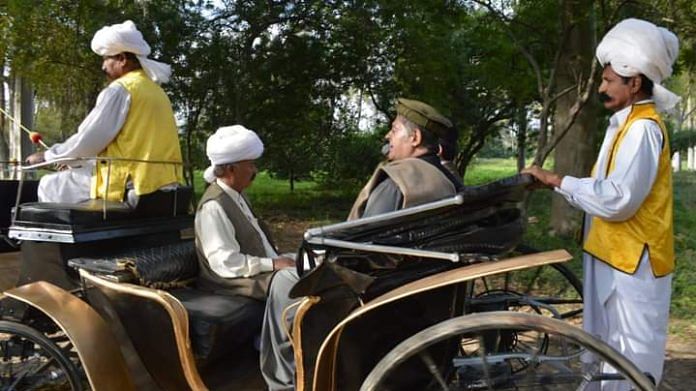New Delhi: Three years ago, Pakistan released a political map that laid claim to erstwhile Junagadh, now in Gujarat, and listed Jammu and Kashmir as disputed territory. While the Indian government called it an exercise in political absurdity, Junagadh’s inclusion was a sign that Pakistan still harboured ambitions of claiming it. The country was responding to Junagadh’s last nawab Muhammad Jahangir Khan, who had kept the dream alive with his clarion call.
“Junagadh is Pakistan,” Khan, who died at the age of 67 in Karachi on 20 July, had said.
Jahangir Khan never got to visit the land that his forefathers ruled, but he couldn’t let go of it either. “My grandfather signed for accession to Pakistan in 1947 out of his love for this country only to lose his state as a result of the action. We are still fighting for our state. The matter is pending in the United Nations,” he had said.
Although Junagadh had a Hindu majority, his grandfather, Nawab Mohammad Mahabat Khan III, initially wanted to throw in his lot with Pakistan. With the threat of military action by India—Jawaharlal Nehru had deployed troops around the state—Khan III fled to Karachi with his family, dogs, valuables, cash, and shares from the Treasury. A Plebiscite in 1948 formalised Junagadh’s absorption into India.
According to the list of the Jahangir Khan’s estate and property, the assets left behind include securities worth Rs 12.9 million with the government of India.
SV Jani, a Junagadh professor who investigated the Arzee Hukumat (provisional government) following the accession, concluded that shortly after arriving in Karachi, Mahabat Khan III visited the Indian High Commission and conveyed his desire to return to Junagadh and combine his state with India.
A few years ago, he reportedly appealed to then-Prime Minister Imran Khan to be made an envoy of Junagadh.
In 2004, in an interview to The Indian Express, Jahangir Khan had hoped to find his roots. “My wish is to visit Junagadh and meet the people of the state which my forefathers ruled. I wish there was brotherhood between Muslims and Hindus like there was before Partition,” he said.
From fight for independence to legal heir
Khan passed away at a private hospital in Karachi. He was suffering from liver disease and had been diagnosed with cancer, said Dawn in its obituary: “He had dedicated his entire life to the independence of the Junagadh State and continued his struggle till his last breath.”
The obituary noted that whenever Khan dressed up in his traditional royal clothes, he would carry a sword, and quietly admit that it was a walking stick.
Over three generations of the family have lived in Junagadh House on Fatima Jinnah Road, including Khan. It was built in 1954 by Mahabat Khan III after he fled his state. The lion was the symbol of the erstwhile state and featured predominantly.
His father, Nawab Mohammad Dilawar Khanji, was the eleventh governor of Sindh.
The lack of a princely state did not end family feuds. But Khan was fighting numerous court cases against his siblings who had sued him over property disputes.
A report by Express Tribune in 2012 stated that Dilawar Khanji was taken to court over how the property should be divided. Lady Saeeda Sultana’s children, including Princess Sultan Bakht, Sahebzada Ghulam Moinuddin Khan, Princess Taj Bakht, Noor Bakht, Zohra Bakht, and seven others filed the petition.
The heirs disagreed with the May 1963 decision of GA Madani, the commissioner of Karachi. Madani split the property of the state of Junagadh in half and gave all of the late Nawab’s property to his father, Nawab Dilawar Khanji. The other heirs got small amounts of cash.
The relatives have questioned the decision because they were not told why the property was divided and their claims were not taken into account. They say this goes against the Muslim Personal Law (Shariat) Act of 1963.
Calling it a ‘national tragedy’, senior members of the Junagadh State Council and past federal ministers Dr Haji Muhammad Tayyab and Engineer Muhammad Iqbal Qureshi sent their condolences.
(Edited by Prashant)



